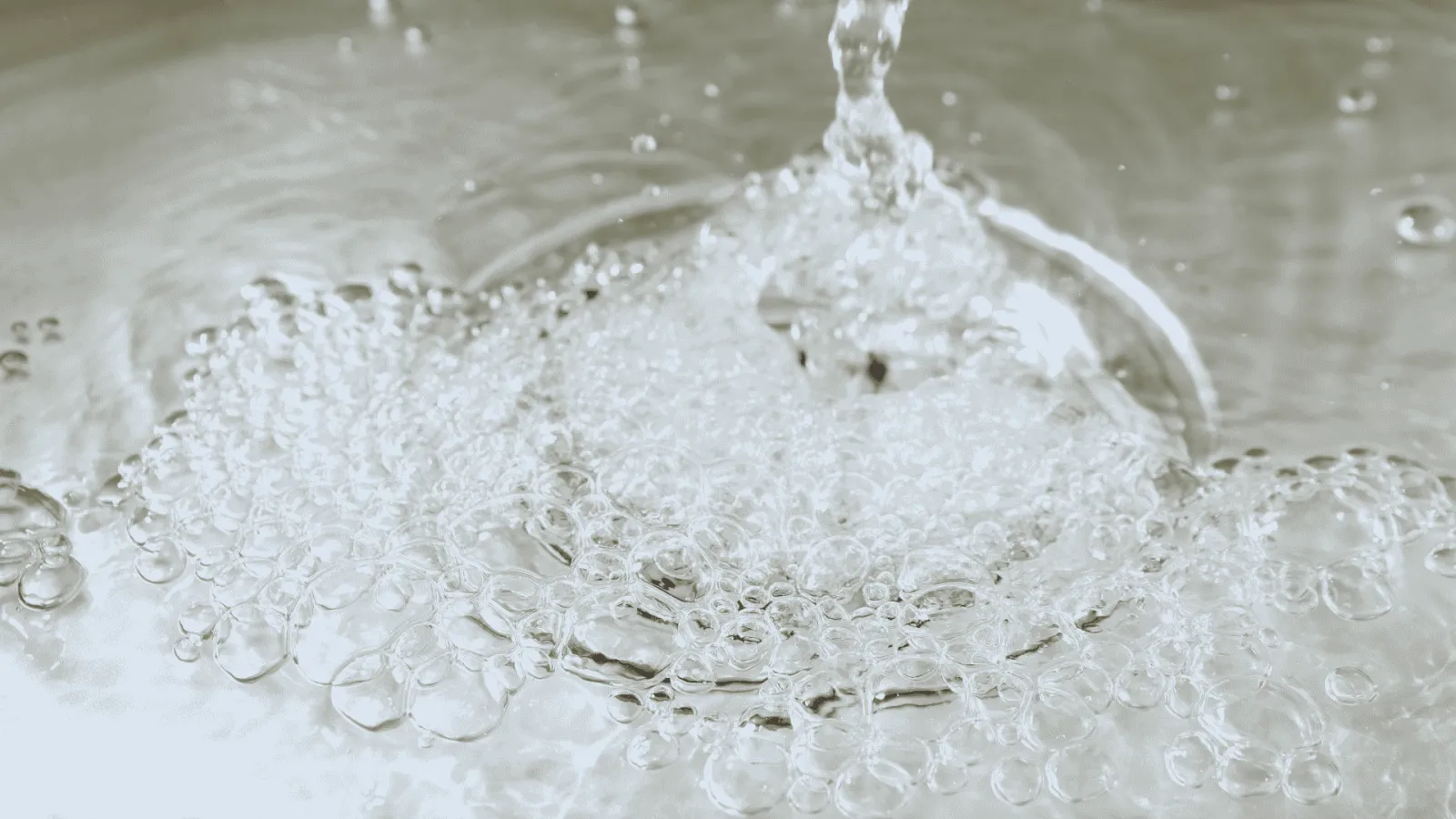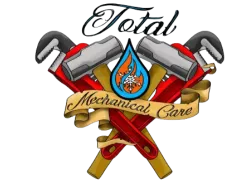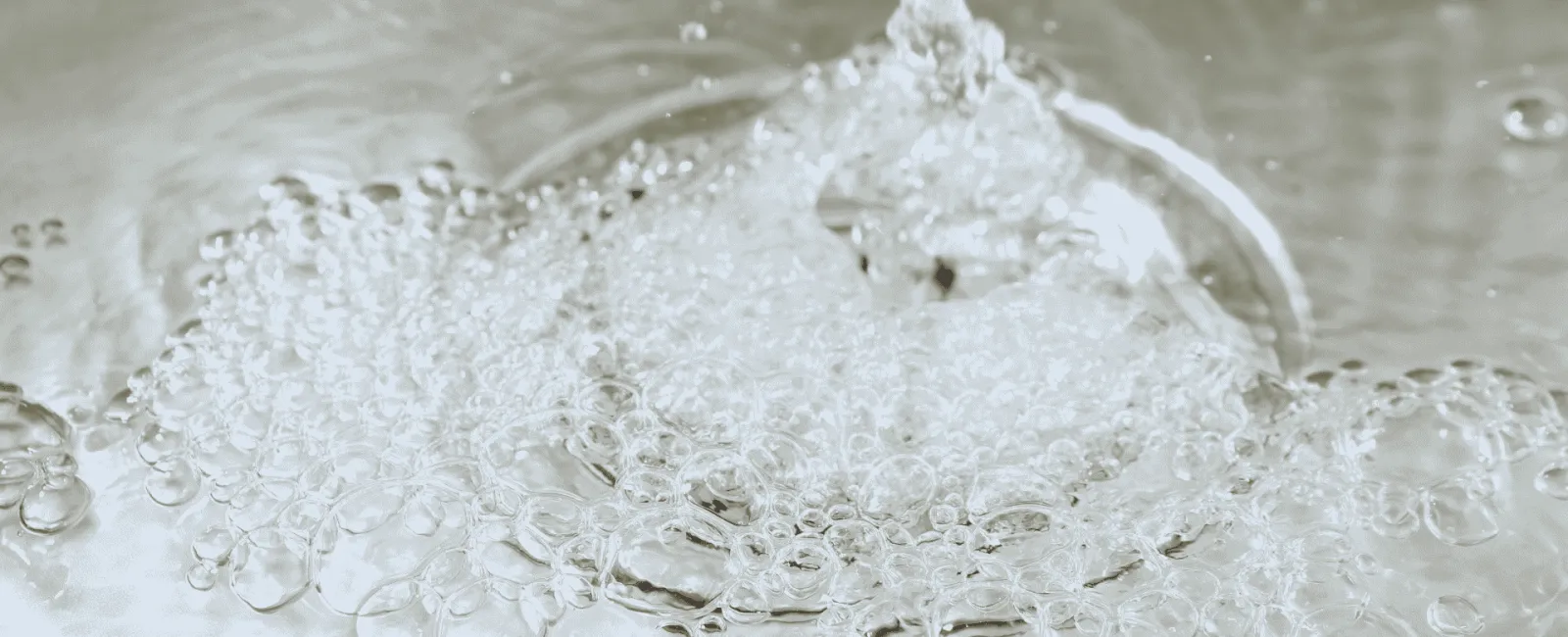November 19, 2025
Here's What Your Plumbing Is Trying to Tell You and How to Fix
You finish washing dishes, the water drains, and then you hear it: that distinctive gurgling, bubbling sound coming from your sink drain. It's not loud enough to panic over, and the water disappeared just fine, so you shrug it off and forget about it. Here's what homeowners often don't realize: when your sink gurgles but continues to drain water fine, your plumbing system is sending you an early warning signal.

After diagnosing thousands of drain issues since 1923, we've learned that gurgling sounds are never random. They always indicate an airflow problem in your plumbing system, and while it might seem minor today, ignoring it can lead to complete blockages, sewer gas issues, or expensive repairs down the line.
Understanding Why Sinks Gurgle: The Science Behind the Sound
To understand why your sink gurgles but drains down just fine, you need to know how modern drainage systems actually work. Most homeowners never think about this until there is an issue.
How Proper Drainage Should Work
Your home's drain system isn't just pipes carrying water away. It's a carefully balanced network that requires two essential elements to function correctly:
1. Water flow: Gravity pulls wastewater down through drain pipes, carrying it away from your home toward the sewer or septic system.
2. Air flow: As water rushes down your drains, it creates a vacuum effect. Without a way for air to enter the system, this vacuum would slow or stop drainage entirely, like trying to pour water from a bottle without a second opening.
That's where vent pipes come in. These pipes, typically extending through your roof, allow air to enter the drainage system, equalizing pressure and enabling smooth, quiet water flow. When this delicate balance between water and air flow gets disrupted, you hear gurgling.
What That Gurgling Sound Actually Means
When your sink gurgles, it means air is being forced through water in your P-trap (the U-shaped pipe under your sink) or trapped air pockets are escaping through the drain opening. This happens because:
- Air can't enter where it should (blocked vent)
- Water flow is restricted (partial clog creating turbulence)
- Pressure is unbalanced (issues in the main drain line)
- The system is pulling air from the wrong place (your sink drain)
The gurgling is your drainage system struggling to breathe properly.
7 Reasons Your Sink Can Gurgle Even If It Drains Fine
Based on our 100+ years of diagnosing drain problems, these are the most common causes we encounter, ranked from most to least frequent:
1. Partial Drain Blockage (45% of Cases)
The most common reason your sink gurgles but drains fine is a partial clog forming in the pipe. Materials accumulate on pipe walls, grease and food particles in kitchen sinks, hair and soap scum in bathroom sinks. Water can still get past these buildups (which is why the drainage seems to work), but the restricted opening creates turbulence and traps air pockets that escape as gurgling sounds.
Why it's deceiving: Many homeowners assume that if water drains, there's no clog. In reality, partial blockages persist for months before becoming complete clogs. The gurgling is your early warning.
2. Blocked or Restricted Vent Pipes (30% of Cases)
Plumbing vents allow air into your drainage system. When they're blocked by bird nests, leaves, debris, snow, or improper installation, your sink gurgles but drains fine because the system compensates by pulling air through your drain opening instead. If you notice gurgling in multiple fixtures or in other drains, blocked vents are likely the culprit.
3. P-Trap Issues (10% of Cases)
The P-trap (the curved pipe under your sink) holds water to block sewer gases and regulate airflow. Problems occur when the water seal is lost through evaporation, the trap is improperly sloped, or it's undersized. P-trap problems often cause intermittent gurgling that comes and goes.
4. Main Sewer Line Problems (5% of Cases)
When your main sewer line develops problems from tree root intrusion, pipe deterioration, or heavy buildup, gurgling is often the first symptom. Warning signs include multiple drains gurgling simultaneously, bubbling toilets, and sewage odors. Professional drain inspection and cleaning are essential, as these issues worsen over time.
5. Air Admittance Valve (AAV) Failure (8% of Cases)
Some modern homes use mechanical valves called air admittance valves instead of traditional roof vents. When an AAV sticks or fails, it can't open properly to admit air, forcing the system to pull air through your drain and creating gurgling sounds.
How to Fix a Gurgling Sink: DIY Solutions That Actually Work
Before calling for professional drain repair services, try these proven solutions. Our technicians recommend this systematic approach:
Step 1: Rule Out Simple Causes (5 Minutes)
Run water for 2-3 minutes: If the gurgling stops, you have a dry or partially dry P-trap. Continue running water for a brief period once a week to prevent recurrence.
Listen carefully: Does the gurgling happen during drainage or after? During suggests a venting issue; after suggests a partial clog.
Test other drains: If multiple fixtures gurgle, you're dealing with a main line or venting issue, not an isolated drain clog.
Step 2: Clear Potential Clogs (20 Minutes)
Use a plunger properly: Fill the sink with 3-4 inches of water. Place the plunger over the drain and ensure a good seal. Plunge vigorously 15-20 times, doing this creates pressure that can dislodge partial clogs.
Try the baking soda and vinegar method:
- Pour 1/2 cup of baking soda down the drain
- Follow with 1/2 cup white vinegar
- Cover the drain with a plug or cloth
- Wait 30 minutes
- Flush with boiling water
This combination creates a fizzing reaction that can break down organic buildup, causing partial clogs. While not as powerful as professional methods, it's safe for all pipe types.
Important: Never use chemical drain cleaners. They're harsh on pipes, ineffective against the types of blockages that cause gurgling, and can create dangerous fumes. Our technicians have seen numerous cases of pipe damage caused by these products.
Step 3: Inspect and Clean the P-Trap (30 Minutes)
If you're comfortable with basic plumbing work:
- Place a bucket under the P-trap
- Loosen the slip nuts by hand or with slip-joint pliers
- Remove the trap and empty it into the bucket
- Clean the trap thoroughly with a brush
- Check for damage or corrosion
- Reinstall, ensuring slip nuts are hand-tight plus 1/4 turn
- Run water and check for leaks
This removes accumulated gunk that can cause partial blockages and gurgling. You'd be surprised what comes out of P-traps; it's often the source of the problem.
Step 4: Check Roof Vents (If Accessible)
Safety warning: Only attempt this if you're comfortable and safe on roofs. Otherwise, hire a professional.
If accessible, locate your plumbing vent pipes on the roof. Look for obvious blockages, such as bird nests or leaves. A garden hose can flush out debris, but be careful, blocked vents can release sewer gases when cleared.
When DIY Isn't Enough
If you've tried these steps and your sink still gurgles but drains fine, you're dealing with a problem that requires professional equipment or expertise. This isn't a failure on your part; some drainage issues simply can't be DIY'd.
Professional Solutions: What Plumbers Can Do That Homeowners Can't
When DIY methods don't resolve the gurgling, professional plumbers have specialized tools that homeowners don't. Here's what professional drain cleaning services can accomplish:
Camera Inspection Technology: Modern drain cameras travel through your entire plumbing system, providing real-time video of exact clog locations, pipe condition, root intrusion points, and structural damage. This eliminates guesswork; we know exactly what's wrong and where.
Hydro-Jetting: For severe buildup, hydro-jetting uses high-pressure water (up to 4000 PSI) to completely clear grease and debris, scour pipe walls clean, remove roots, and restore full pipe diameter. This is far more effective than snaking; it doesn't just punch through blockages, it removes them entirely.
Vent System Diagnosis: Professional plumbers can smoke-test vent systems to detect blockages, safely clear deep obstructions, install or repair air admittance valves, and redesign inadequate venting. Vent problems are particularly tricky for homeowners because they require roof access and specialized equipment.
Main Line Services: When gurgling indicates main sewer line issues, professionals locate access points, clear heavy blockages or root masses, assess pipe condition, and recommend repair or replacement if needed. Mainline work requires specialized equipment and knowledge.
Why You Shouldn't Ignore a Gurgling Sink
Many homeowners adopt a "wait and see" approach when their sink gurgles but drains fine. After all, if water's still going down, how bad can it be? Based on decades of experience, we can tell you: this approach often leads to much bigger problems.
Gurgling Usually Gets Worse, Not Better
Partial clogs don't spontaneously clear themselves. They accumulate more material over time. That slight gurgling today becomes:
- Slower drainage next month
- Complete blockage within 3-6 months
- Backup and potential water damage
We've seen countless cases where a homeowner ignored gurgling for months, only to wake up to a completely clogged drain at the worst possible time, often right before hosting guests or during a holiday.
Sewer Gas Exposure Risks
If gurgling is caused by venting problems or dry P-traps, sewer gases can enter your home. These gases contain:
- Hydrogen sulfide: Toxic at high concentrations, causes that "rotten egg" smell
- Methane: Flammable and displaces oxygen
- Ammonia: Irritates eyes and the respiratory system
While occasional low-level exposure isn't immediately dangerous, chronic exposure can cause health issues. And if you smell sewer gases, your plumbing's protective barriers have already failed.
Water Damage and Mold Growth
Unaddressed drainage problems can lead to hidden leaks or backups that cause:
- Cabinet and floor damage
- Mold growth in walls or under cabinets
- Structural wood rot
These issues are far more expensive to repair than addressing the original gurgling problem.
Progressive Pipe Damage
When your drainage system operates under constant negative pressure (which causes gurgling), it stresses pipes, seals, and connections. Over the years, this can lead to:
- Weakened pipe joints
- Cracked older pipes
- Failed seals and gaskets
Maintaining proper air and water flow protects your entire plumbing system from premature wear.
When to Call a Professional Plumber
Contact professional drain cleaning specialists when:
- DIY methods don't work after trying the steps above
- Multiple fixtures gurgle (indicates systemic problem)
- Gurgling accompanies other symptoms like slow drainage, sewage odors, or backups
- You have an older home (pre-1980 homes often have venting or pipe issues)
- Gurgling is getting worse over time
- You smell sewer gases (requires immediate attention)
Professional service isn't just about fixing today's problem; it's about understanding your specific plumbing system and preventing future issues. Expect a diagnostic assessment, camera inspection (if needed), clear explanations, transparent pricing, and prevention guidance specific to your system.
Preventing Future Gurgling: Maintenance That Actually Works
After over a century of drain service, we can tell you definitively: preventive maintenance is far cheaper and easier than emergency repairs. Here's what actually works:
Weekly Habits
- Run hot water for 30 seconds after using the sink to flush debris
- Use sink strainers to catch food particles and hair
- Never pour grease down kitchen drains (wipe greasy pans with paper towels first)
- Run water in rarely-used sinks to keep P-traps filled
Monthly Maintenance
- Flush drains with boiling water to dissolve soap and grease buildup
- Use the baking soda and vinegar method as a preventive cleaning
- Check under sinks for slow leaks or moisture
- Listen for any new or changing sounds from drains
Annual Professional Care
- Schedule preventive drain cleaning for main lines
- Have plumbing vents inspected (especially if you have trees nearby)
- Check P-traps and drain connections for wear
- Consider camera inspection if you have an older home or large trees near sewer lines
These simple habits extend the life of your plumbing system and catch problems early, when they're cheapest and easiest to fix.
The Bottom Line: Gurgling Is Your Plumbing's Early Warning System
When your sink gurgles but drains fine, it's tempting to ignore the sound. Water still goes down, so what's the problem? But now you know: gurgling is never normal, and it's never random. It's your plumbing system telling you that air isn't flowing where it should, because of a forming clog, a blocked vent, or another issue that will only get worse with time.
The good news? Catching the problem at the gurgling stage usually means simpler, less expensive repairs. A partial clog is easier to clear than a complete blockage. A blocked vent is easier to clear than replacing damaged pipes caused by years of negative pressure. Addressing gurgling promptly protects both your plumbing system and your budget.
At Total Mechanical Care, we've spent over 100 years listening to what homeowners' plumbing systems are trying to say. We've learned that the small warning signs—like gurgling—are opportunities to prevent bigger problems. Whether you try the DIY solutions in this guide or call us for a professional diagnosis, the key is taking that gurgling seriously.
Because in plumbing, as in life, small problems ignored become big problems that demand attention. Better to fix the gurgling today than the backup tomorrow.
Still Hearing That Gurgling Sound?
If DIY methods haven't resolved your gurgling sink, or if you'd rather have a professional diagnosis from the start, Total Mechanical Care is here to help. Our licensed plumbers bring over 100 years of drain expertise to every service call.
We offer flat-rate pricing, same-day service, and 24/7 emergency response.
Don't let a gurgling sink become a complete blockage. Call Total Mechanical Care for honest diagnosis and professional drain solutions.
Frequently Asked Questions
Why does my sink gurgle but drain fine?
Your sink gurgles but drains fine because air is being forced through your drain due to restricted airflow elsewhere in the system. This usually means a partial clog is forming, vents are blocked, or the pressure in your plumbing is unbalanced. The gurgling is an early warning; water still drains because the blockage isn't complete yet.
Is a gurgling sink dangerous?
A gurgling sink isn't immediately dangerous, but it can lead to serious problems if ignored. It may allow sewer gases into your home, indicate a forming clog that will eventually cause backups, or signal venting problems that stress your plumbing system. Address gurgling promptly to prevent these issues.
Can I use chemical drain cleaners for a gurgling sink?
No. Chemical drain cleaners are harsh on pipes and ineffective for partial clogs or venting issues that cause gurgling. They can damage older pipes and create dangerous fumes. Use mechanical methods (plunging, snaking) or natural solutions (baking soda and vinegar) instead.
Will gurgling stop on its own?
No. Gurgling indicates an underlying problem that won't resolve on its own. Partial clogs continue to accumulate debris, blocked vents remain blocked, and pressure imbalances persist. Gurgling typically gets worse over time until the underlying issue is addressed.
Can I prevent my sink from gurgling?
Yes. Regular maintenance prevents most gurgling causes: use sink strainers, avoid pouring grease down drains, flush with hot water weekly, run water in rarely-used sinks, and schedule annual professional drain cleaning. These simple habits help prevent clogs and maintain proper airflow in your system.



